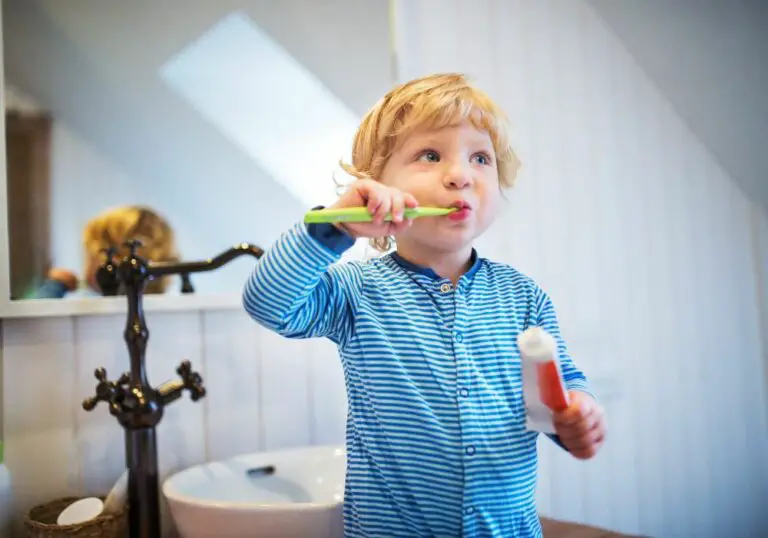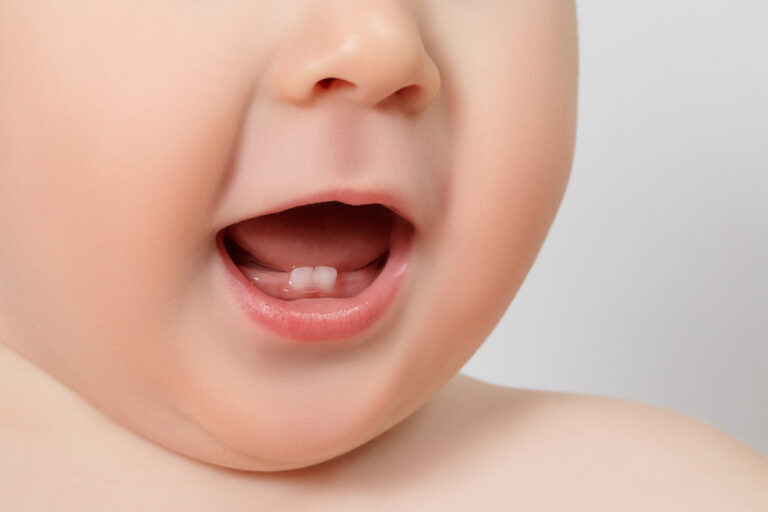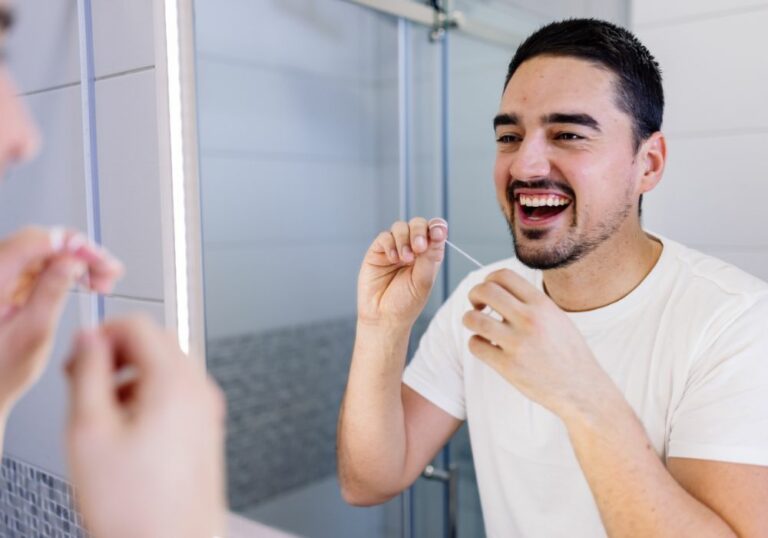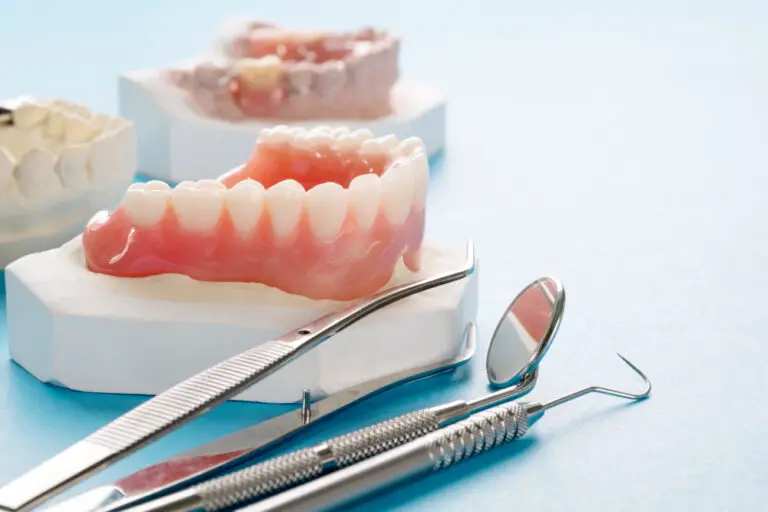Do you find yourself waking up with sore jaw muscles or a headache? If so, you may be grinding your teeth at night. This condition, known as bruxism, affects many people and can cause serious dental problems if left untreated. Fortunately, there are several methods you can use to stop grinding your teeth at night.
One option is to use a mouthguard or splint. These devices work by cushioning your teeth and preventing them from grinding against each other. Mouthguards are available over-the-counter, but it’s best to consult with your dentist to ensure a proper fit. Your dentist may also recommend a custom-made splint for more severe cases of bruxism.
Another approach is to practice jaw relaxation exercises. These exercises can help reduce muscle tension and relieve pain caused by teeth grinding. Additionally, stress reduction techniques such as meditation or yoga may also be helpful in reducing bruxism. In some cases, medication may be prescribed to help relax the jaw muscles and prevent teeth grinding.
Understanding Teeth Grinding
Teeth grinding, also known as bruxism, is a common condition that affects many people. It is the act of clenching or grinding your teeth, usually during sleep, but it can also occur during the day. Teeth grinding can cause a variety of problems, such as tooth damage, jaw pain, headaches, and sleep disturbances. In this section, we will discuss the causes and symptoms of teeth grinding.
Causes of Teeth Grinding
The exact cause of teeth grinding is not fully understood, but it is believed to be a combination of physical, psychological, and genetic factors. Here are some of the common causes of teeth grinding:
- Stress and anxiety
- Abnormal bite or misaligned teeth
- Sleep disorders, such as sleep apnea
- Medications, such as antidepressants
- Alcohol and drug use
- Parkinson’s disease and other neurological conditions
Symptoms of Teeth Grinding
Teeth grinding can cause a variety of symptoms, and some people may not even be aware that they are grinding their teeth. Here are some of the common symptoms of teeth grinding:
- Grinding or clenching of teeth, especially during sleep
- Worn, chipped, or cracked teeth
- Jaw pain or soreness
- Headaches, especially in the morning
- Earaches or ringing in the ears
- Sleep disturbances, such as insomnia or restless sleep
If you are experiencing any of these symptoms, it is important to talk to your dentist or doctor. They can help you determine the cause of your teeth grinding and recommend appropriate treatment options.
Medical Treatments
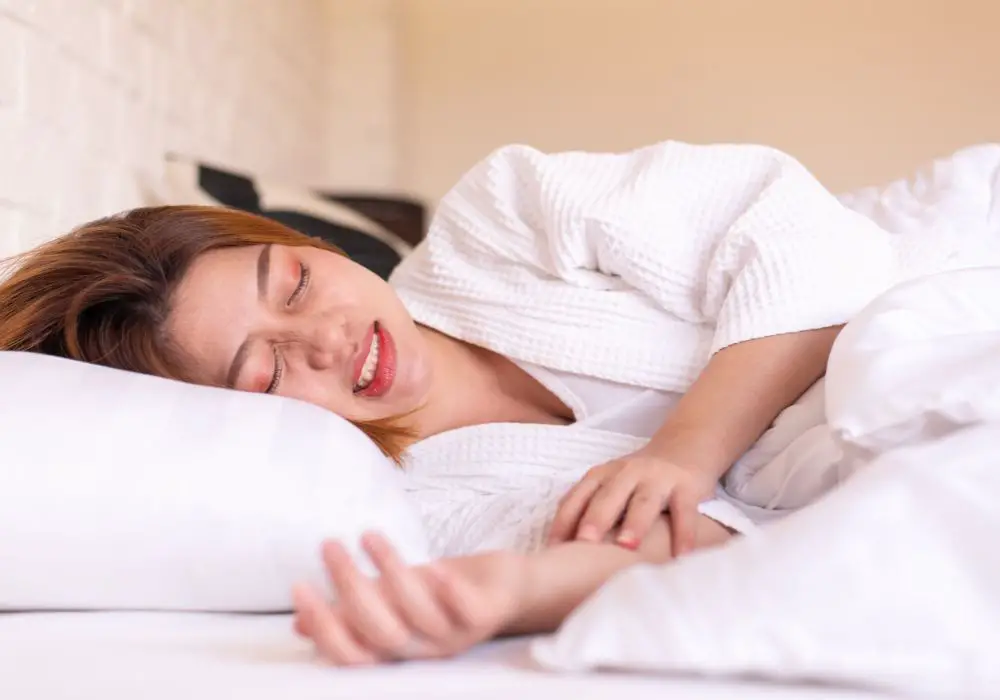
If you have been diagnosed with bruxism, there are several medical treatments available that can help you stop grinding your teeth at night. Your dentist or doctor can recommend the best treatment option for you based on the severity of your condition and the underlying cause.
Dental Approaches
Dental approaches are often the first line of treatment for bruxism. Your dentist may recommend a custom-made mouthguard or splint that fits over your teeth to protect them from damage caused by grinding. These devices work by keeping your teeth separated and preventing them from grinding against each other.
In some cases, your dentist may also recommend dental work to correct any misaligned teeth or other dental problems that may be contributing to your bruxism. This can include crowns, bridges, or orthodontic treatment.
Medication Options
If dental approaches are not effective, your doctor may recommend medication to help you stop grinding your teeth at night. Muscle relaxants can be prescribed to help relax the muscles in your jaw and reduce grinding. However, these medications can have side effects and are not recommended for long-term use.
Another medication option is Botox injections. Botox can be injected into the muscles of the jaw to help relax them and reduce grinding. However, this treatment is expensive and the effects are temporary.
In some cases, antidepressants or anti-anxiety medications may be prescribed to help manage the underlying stress or anxiety that may be contributing to your bruxism.
It is important to remember that medical treatments should be used in conjunction with other self-care techniques, such as stress reduction and relaxation exercises, to effectively manage bruxism. Consult with your dentist or doctor to determine the best treatment plan for you.
Home Remedies
If you grind your teeth at night, there are several home remedies that you can try to help reduce the frequency and severity of the problem. Here are a few options to consider:
Lifestyle Changes
One of the most effective ways to stop grinding your teeth at night is to make some changes to your daily routine. Here are a few things you can try:
- Reduce stress: Stress is a common cause of teeth grinding, so finding ways to manage your stress levels can be helpful. Consider practicing relaxation techniques like meditation, yoga, or deep breathing exercises.
- Avoid stimulating substances: Stimulants like caffeine and alcohol can make teeth grinding worse, so try to limit your intake of these substances.
- Get enough sleep: Being tired can make teeth grinding worse, so make sure you are getting enough sleep each night.
- Exercise regularly: Regular exercise can help reduce stress and tension in the body, which can help reduce teeth grinding.
Over-the-Counter Solutions
There are also several over-the-counter solutions that you can try to help stop grinding your teeth at night. Here are a few options:
- Mouthguards: Mouthguards can help protect your teeth from damage caused by grinding. They work by cushioning your teeth and stopping them from grinding against each other. You can purchase mouthguards at most drugstores or online.
- Muscle relaxants: Muscle relaxants can help relax the muscles in your jaw and prevent teeth grinding. You can purchase these over-the-counter at most drugstores or online.
- Essential oils: Some essential oils, like lavender and chamomile, are known for their calming properties and may help reduce stress and tension that can contribute to teeth grinding. You can apply these oils topically or diffuse them in your bedroom at night.
Remember, if your teeth grinding is severe or causing you pain, it’s important to speak with your dentist or doctor about additional treatment options.
Preventive Measures
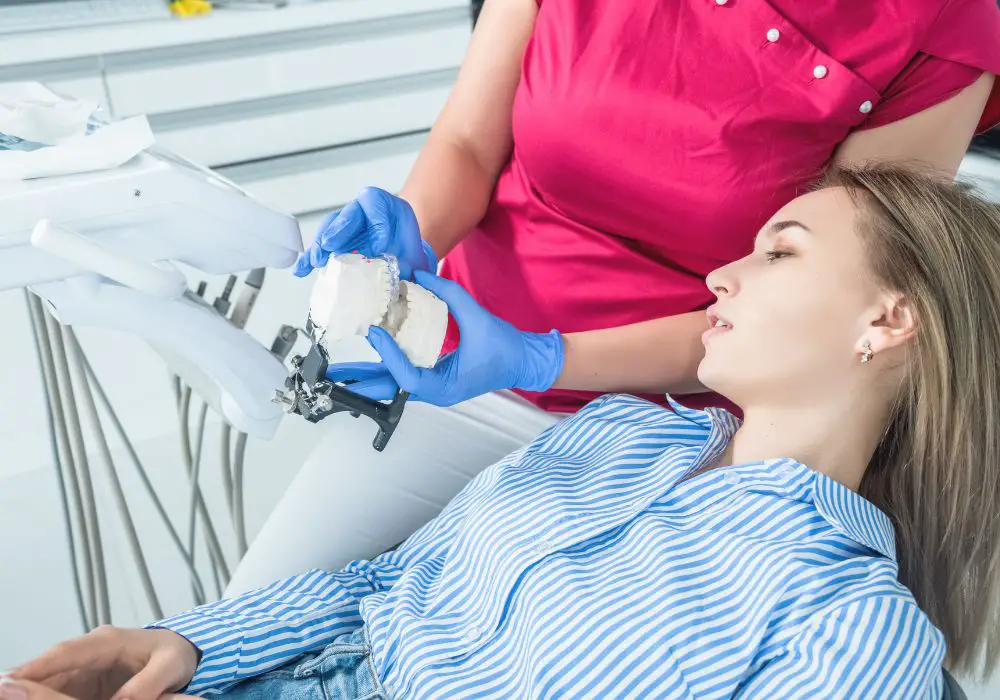
If you grind your teeth at night, there are some preventive measures that you can take to reduce the frequency and severity of your symptoms. Here are some tips that you can try:
Stress Management
Stress is a common trigger for teeth grinding, so finding ways to manage stress can be helpful. You can try relaxation techniques such as deep breathing, meditation, or yoga to reduce stress levels. Regular exercise can also help to reduce stress and promote relaxation.
Regular Dental Check-Ups
Regular dental check-ups can help to identify any dental problems that may be contributing to your teeth grinding. Your dentist can also recommend treatments such as a mouthguard or splint to protect your teeth from damage. It’s important to follow your dentist’s recommendations for treatment to prevent further damage to your teeth.
In addition to these preventive measures, there are some lifestyle changes that you can make to reduce your risk of teeth grinding. These include avoiding caffeine and alcohol, which can increase stress levels and contribute to teeth grinding. You should also avoid chewing on objects such as pens or pencils, which can put additional stress on your teeth and jaw.
By taking these preventive measures, you can reduce your risk of teeth grinding and protect your teeth from damage. If you continue to experience symptoms despite these measures, it’s important to talk to your dentist or doctor about other treatment options that may be available.
Psychological Approaches
If you’re grinding your teeth at night due to stress or anxiety, psychological approaches may be helpful in managing your symptoms. Here are two options to consider:
Cognitive Behavioral Therapy
Cognitive Behavioral Therapy (CBT) is a type of talk therapy that can help you identify and change negative thought patterns and behaviors. CBT can be useful for managing stress and anxiety, which can contribute to teeth grinding.
During CBT sessions, you’ll work with a therapist to identify the thoughts and behaviors that are contributing to your stress and anxiety. Your therapist will then help you develop strategies to change these patterns and improve your overall mental health.
Relaxation Techniques
Relaxation techniques can help reduce stress and anxiety, which can be contributing factors to teeth grinding. Here are a few techniques to try:
- Deep breathing exercises
- Progressive muscle relaxation
- Yoga or stretching
- Meditation or mindfulness practices
By incorporating these techniques into your daily routine, you may be able to reduce your stress levels and improve your overall mental health. This, in turn, may help reduce your teeth grinding at night.
Remember that psychological approaches may take time to work, and it’s important to be patient and consistent with your efforts. If you’re struggling to manage your teeth grinding on your own, consider reaching out to a mental health professional for additional support and guidance.
Frequently Asked Questions
How can I prevent teeth grinding at night?
There are several ways to prevent teeth grinding at night. One of the most effective ways is to use a mouth guard or splint. You can also try practicing relaxation techniques such as meditation, deep breathing, or yoga. Avoiding caffeine and alcohol before bed may also help.
What are some natural remedies for teeth grinding?
Some natural remedies for teeth grinding include drinking chamomile tea before bed, using essential oils such as lavender or peppermint, and applying a warm compress to your jaw muscles. Additionally, practicing stress-reducing activities like exercise, journaling, or spending time in nature may help.
What types of mouth guards can I use to prevent teeth grinding?
There are several types of mouth guards that can be used to prevent teeth grinding. Custom-fit night guards are the most effective, as they are specifically made to fit your teeth and provide the best protection. Over-the-counter mouth guards are also available, but they may not fit as well and may not provide as much protection.
How can stress management techniques help with teeth grinding?
Stress is a common cause of teeth grinding, so practicing stress management techniques can be helpful in preventing it. Activities like meditation, deep breathing, or yoga can help reduce stress and promote relaxation, which can in turn reduce teeth grinding.
What are the long-term effects of teeth grinding?
Long-term teeth grinding can cause damage to your teeth, jaw, and gums. It can lead to tooth sensitivity, headaches, jaw pain, and even tooth loss in severe cases. It’s important to address teeth grinding early on to prevent further damage.
When should I see a dentist or doctor about teeth grinding?
If you are experiencing frequent teeth grinding, it’s important to see a dentist or doctor. They can evaluate the extent of the grinding and recommend appropriate treatment options. In severe cases, a referral to a specialist may be necessary.

